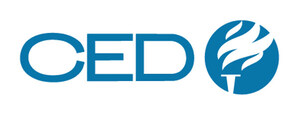Report: Education System Must Address Pandemic-Era Learning Losses--Or Students Will Suffer Economically
News provided by
Committee for Economic Development of The Conference Board (CED)Jun 14, 2023, 16:56 ET
NEW YORK, June 14, 2023 /PRNewswire/ -- Today, the Committee for Economic Development, the public policy center of The Conference Board (CED), issued a new Solutions Brief, A Nation Equipped: A K-12 Education System for Today and Tomorrow.
As the report details, the response to the COVID-19 pandemic—especially the closure of schools—propelled a national education crisis. The fallout included an upended K-12 education system, with academic progress being halted across the country and being felt most deeply among the less fortunate, with students in high-poverty schools suffering the sharpest decline. Left unaddressed, the pandemic's impact on K-12 education and the subsequent learning loss will have damaging economic implications for students and the nation.
The Solutions Brief provides recommendations for not only mitigating the more immediate educational ground lost during the pandemic, but also for addressing the long-term, systemic problems undermining our education system. It includes the need for schools to leverage technology, such as AI and machine learning tools, to help accelerate and maximize educational development.
"Without a swift and bold course correction, the pandemic's educational and economic devastation on students—who are the nation's workforce of tomorrow—will be felt for decades to come. We have an immediate window to pursue recovery strategies and advance educational attainment to ensure students succeed. While the challenge is significant, it lies within reach—but only through close collaboration among key stakeholders including business, education, and government at all levels," said Dr. Lori Esposito Murray, President of CED.
Key Recommendations to Make Up for Pandemic-Era Learning Losses:
Leaders at the local, state, and national levels, in both the private and public sectors, need to collaborate with our K-12 educators and schools. Together, they must urgently address both the short-term challenge of pandemic-era learning losses, and the underlying problems that prevent an effective US education system. CED recommends the following as part of a comprehensive approach:
- Maximize student learning, using technological advances, including in AI. School leaders need to collaborate with leaders in the technology sector to deliver learning strategies that honor the pace of learning for each student and leverage technology to maximize educational development.
- Use data and technology for rapid evaluation to drive strategies and continuous improvement. Local leaders should work with technology experts to develop the capacity to track progress rapidly and make real-time adjustments. The investment in technology platforms during the pandemic can yield important learning data. Expanding broadband access and affordability should continue. Investments by policy leaders need to be informed by targeted goals and evidence-based strategies.
- Establish a national taskforce to identify best practices. Congress should establish a taskforce and invest in research to assess lessons learned, best practices, and innovative strategies in K-12 education.
- Engage partners to expand school capacity. School leaders should partner with the business sector, higher education, local leaders, and philanthropic and community organizations to bolster capacity. They should connect students and families with social services supports that remove barriers to learning; supports include community schools, school-based health centers, and after-school and summer programs.
- Build access to post-secondary pathways: provide opportunities for apprenticeships. Schools must build awareness of career pathways among students and parents/guardians. Employers, community organizations, and workforce development agencies should be leveraged as vehicles.
- Build school-wide capacity to address mental and emotional health needs. Leaders must consider strategies, such as telehealth, to deliver much needed services to students. Further, schools must build awareness of mental health challenges and provide training within the school community.
- Grow the teacher pipeline. The Registered Apprenticeship model, in collaboration with the business community, has been lauded as an innovative approach to growing the teacher pipeline. The first registered apprenticeship program in the nation for teaching was approved in 2022 and serves as a model.
- Prepare now for future disruptions. School leaders must learn from the lessons of the pandemic to improve emergency preparedness, minimize the length of closures, and deliver improved methods for continued learning.
- Consider funding sustainability. Leaders should consider sustainability solutions for when federal funding ends. Longer-term strategies are needed to avoid disruption from a funding cliff.
- Invest in students early. In addition to efforts to expand high-quality early learning options, local leaders should invest resources to address student performance gaps as early as kindergarten to ensure student success in subsequent grades.
- Reconnect students and families into the school system. Leaders should draw from best practices at the local and regional levels that can be replicated across the nation.
About CED
The Committee for Economic Development (CED) is the public policy center of The Conference Board. The nonprofit, nonpartisan, business-led organization delivers well-researched analysis and reasoned solutions in the nation's interest. CED Trustees are chief executive officers and key executives of leading US companies who bring their unique experience to address today's pressing policy issues. Collectively they represent 30+ industries, over a trillion dollars in revenue, and over 4 million employees. www.ced.org
About The Conference Board
The Conference Board is the member-driven think tank that delivers trusted insights for what's ahead. Founded in 1916, we are a non-partisan, not-for-profit entity holding 501 (c) (3) tax-exempt status in the United States. www.ConferenceBoard.org
SOURCE Committee for Economic Development of The Conference Board (CED)

WANT YOUR COMPANY'S NEWS FEATURED ON PRNEWSWIRE.COM?
Newsrooms &
Influencers
Digital Media
Outlets
Journalists
Opted In





Share this article